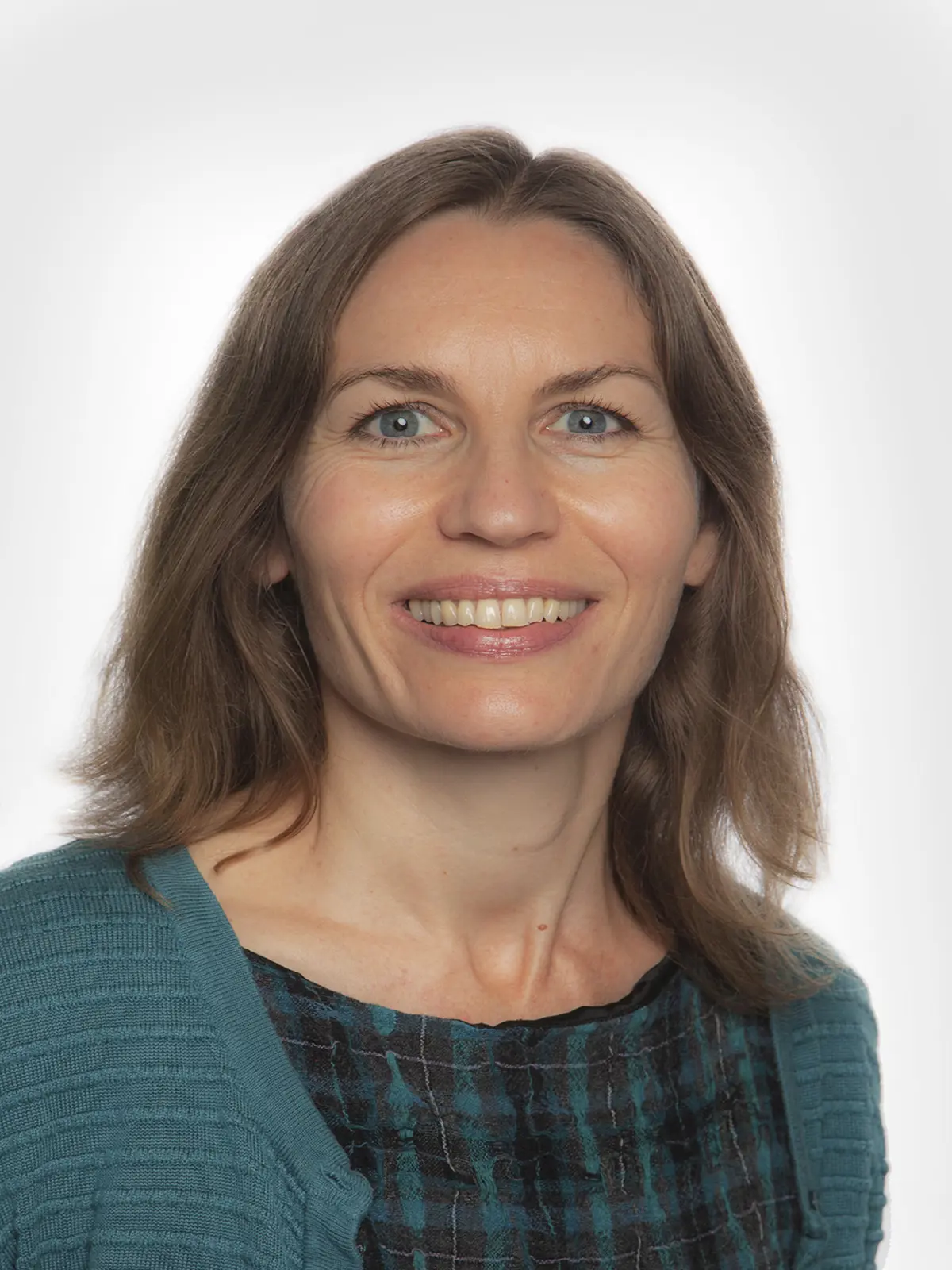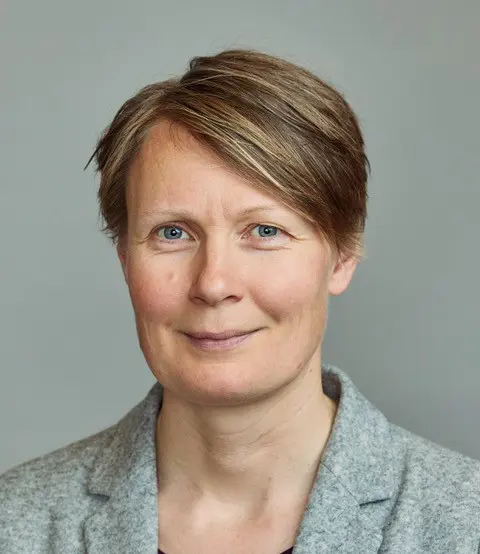Mohn Research Center for Psychotic disorders (MRCP)
Individuals with mental disorders have a significantly shorter life expectancy compared to the rest of the population. We want to do something about this. The Mohn Research Center for Mental Disorders has as its overall goal to conduct patient-centered research to improve mental and physical health, and in this way reduce the risk of early death.
Mohn Research Center for Psychotic Disorders (MRCP) combines patient-centered research, experiential expertise and advanced technology to improve the treatment of mental and physical disorders in people with psychotic disorders. Shortened life expectancy in this group has been shown to have several causes, and the challenges include:
- Risk factors for natural and unnatural death are not detected or treated in time
- Some patients have little effect or serious side effects from available psychosis treatment. The most effective psychiatric medications are used too little.
- Results from new research on improved treatment take too long to implement in clinical practice.
MRCP will conduct clinical and high-tech research to improve and personalize the treatment of mental and physical disorders and thereby reduce the risk of early death. Experts in different research areas and people with experiential expertise will collaborate closely to achieve our goals.
Leader and management
Erik Johnsen is professor of psychiatry at the Department of Psychiatry, University of Bergen, and is Chief consultant psychiatrist at the Department of Psychiatry, Haukeland University Hospital. He has been the Center Director of the Mohn Research Center for Psychotic Disorders (MRCP) since 01.03.2024. He is also the Director of the Bergen Psychosis Research Group (BPRG) and the Chairman of the Board of the Norwegian Network for Serious Mental Disorders (NORSMI). He has previously been one of the core researchers at the Center for Excellent Research NORMENT.
His research areas include independent drug studies and identification of basic mechanisms for psychotic disorders, effects and side effects of drugs with the goal of more personalized treatment. Over the years, he has led several national and international research projects in the field of psychotic disorders and schizophrenia, including; Bergen Psychosis Project (BP) 1 and BP2 /BeSt InTro), Prednisolone in Early Psychosis Study (NorPEPS), Drug-Free Psychosis Treatment (NonPharm) and Personalized Medicine in Psychosis Treatment (Stem Cells in Psychosis Project). In addition, he has led and contributed to research activities in collaboration with international multicenter studies such as EULAST- I and II, and PURPOSE.
More information about the research work and publications can be found here:
Erik Johnsen | Universitetet of Bergen (uib.no)

More information will come.
Vidar M. Steen is professor of molecular medicine at the University of Bergen, and head of the Department of Medical Genetics at Haukeland University Hospital, Bergen. During 2013-2023, he was co-director of the CoE NORMENT (https://www.med.uio.no/norment/english/).
His research is focused on identifying and understanding genetic and biological factors that are involved in illness mechanisms and therapeutic response during
pharmacological treatment of schizophrenia and bipolar disorder, using a combination of clinical data, biomarker screening and functional studies in patient
samples and various experimental models. A major hypothesis has been that lipid biosynthesis-promoting actions of antipsychotic drugs may be relevant for the metabolic adverse effects but also their therapeutic effects in patients with psychotic disorders. He is also studying the complex interplay between metabolic factors and inflammation processes in development of psychosis and during antipsychotic treatment.

Anne Alnes Blindheim has a MA from The University of Bergen, and work as a lived experience advisor in The Division of Psychiatry, Helse Bergen. Blindheim is the leader of the advisory board Psychosis Research with Lived Experience (PEK), and facilitator of user involvement at the Research Department, Division of Psychiatry.
Farivar Fathian, MD (1991) is specialist in Psychiatry (2010) and Family medicine (2007). She has PhD (2019) with focusing on schizophrenia, inflammation and effects of antipsychotics. Fathian has been working as senior consultant psychiatrist since 2010 with experience from, psychosis- affective and gerontopsychiatric departments. She is MRCP coordinator and continues her research activity as senior researcher for the current CVD-MENT study. She has also been research administrative coordinator for Bergen Psychosis Research Group (BPRG) since 2020. Fathian is both member of Norwegian Network for Severe Mental Illnesses (NORSMI), and program- committee

for Mohn Research Center for Regenerative Medicine (MRCRM).
Group leaders
Ketil J. Ødegaard is a professor of psychiatry and head of research at the Clinical Institute 1 at UIB and head of research in the division of mental health care at Helse-Bergen. He leads the Bergen bipolar and depression research research group. The group studies bipolar disorders and other depressive disorders using various methods and approaches that include psychopharmacology, neurostimulation treatment, sensor technology, registry research, cognitive function, genetics/biomarkers and brain imaging. The research group has a translational focus where the goal is to contribute to increased etiological understanding and insight into psychopathological processes in affective disorders through mainly clinical treatment studies.

More information will come.
Nils Eiel Steen is a professor of psychiatry at the Institute of Clinical Medicine, Faculty of Medicine, University of Oslo, and a senior consultant at Department of Research and Innovation, Division of Mental Health and Addiction, Oslo University Hospital. As the leader of the Biological Psychiatry group, his research focuses on biological strategies directed at identifying ways of improving clinical treatment for individuals with schizophrenia and bipolar disorder. The group’s work particularly center on immune activation and inflammation, pharmacological treatment, and the risk of cardiovascular disease.
Biological psychiatry - Institute of Clinical Medicine

Trine Vik Lagerberg is a professor in clinical psychology at the Department of Psychology, University of Oslo and head of the Research and Innovation department in the Division of Mental Health and Addiction, Oslo University Hospital. She also heads the research group “Mechanisms of psychopathology”, which was established as part of CoE NORMENT (Norwegian Centre for Research on Mental Disorders, 2013-2023). Lagerberg’s main research focus has been on clinical aspects of bipolar disorder and in particular the comorbidity with substance use disorders. She has also initiated the establishment of a specialised clinical unit for bipolar disorder, where most of her current research takes place. She has a specific interest in emotional dysregulation, chronorhythmic disturbances and the development and implementation of digital tools for illness monitoring and improved care in severe mental disorders.
The Mechanisms of psychopathology research group
The research group aims to contribute to a better understanding of mechanisms underlying the symptom variation seen in bipolar disorders and other psychotic disorders over time and between individuals. The core phenomena investigated are emotional dysregulation, substance use, chronorhythmic disturbances, and illness insight. We aim to investigate the prevalence and dynamics of these phenomena, including their relationship to core affective and psychotic symptoms, and thereby contribute to better treatment of bipolar disorder. The group will run clinical interventions, and use innovative digital tools to enhance clinical care and self-management.
Current projects
- The BIP-DPS-study: Better understanding of outcome and functioning in bipolar disorder through prospectice digital characterization in a clinical setting
- The PEDAL intervention: Reducing affective lability in bipolar disorder – a randomised controlled trial (post doc project Margrethe Collier Høegh)
- Self-medication in bipolar disorder; the temporal relationship between mood, sleep and substance use (PhD project Stine Holmstul Glastad)
- Clinical insight in bipolar disorder (PhD project Camilla Bakkalia Büchmann)
- The Unified Protocol – a feasibility study of emotion- and accept-focused group psychotherapy for bipolar disorder (post doc project Magnus Johan Engen)
Group members:
Margrethe Collier Høegh, post doc
Sofie Aminoff, researcher
Elizabeth Barrett, researcher
Magnus Johan Engen, post doc
Siv Hege Holmstul, post doc
Stine Holmstul Glastad, PhD candidate
Camilla Bakkalia Büchmann, PhD candidate
Associated group members:
Thomas Bjella, researcher
Mari Nerhus, ass. professor

Srdjan Djurovic is a research - group leader for the Psychiatric Molecular Genetics at Depatment av Medical Genetics, Oslo University Hospital. He is also professor at Department of Clinical Scence, University of Bergen.The Psychiatric Molecular Genetics Group works to advance knowledge of the molecular genetics of psychiatric disorders through a strong multidisciplinary research environment. The group has multiple active research projects in collaboration with NORMENT2050, a major collaborative effort studying clinical characteristics, neurocognitive functioning, genetics and brain biology of psychotic disorders and with the newly formed Centre for Precision Psychiatry (OUH/UiO).
Aims
Our research aims are to:
- perform molecular genetic analyses to increase the knowledge and expertise in psychiatric genetics and genomics
- identify the molecular networks underlying psychiatric disorders
- continually develop an organization to support psychiatric genomics and stem cell studies with design and planning and experiments.
- continuously foster new ideas
-
Srdjan Djurovic er forskningsgruppeleder Psykiatrisk molekylærgenetikk ved Avdeling for medisinsk genetikk ved Oslo universitetssykehus HF og Professor ved Klinisk institutt 2 ved Universitetet i Bergen.
For more information, please see here:
https://ous-research.no/home/djurovic/Group+members/12800

Srdjan Djurovic (Photo: private)
Else-Marie Løberg is a Chief advisor at the Division of Psychiatry, Haukeland University Hospital and professor at the University of Bergen, Norway. She has for the last three decades been working with research, service development and leadership in addition to clinical work in the specialised mental health care in Bergen, Norway. She has been a director at Haukeland University hospital in the field of addiction medicine. Currently she is also serving on the board of the Oslo University Hospital. She has led and are leading several research projects and clinical trials in mental health. She is the deputy head of the Bergen Psychosis Research Group (BPRG), Haukeland University hospital. She is the principal investigator (PI) of the national clinical trial the Key to Integrated Trauma treatment in psychosis (the KIT trial). She is WP head in the Mohn Research Centre for Psychotic Disorders, PI of the Bergen Psychosis project 2: influence of trauma and in the leader group of the Bergen Addiction Research group (BAR). She is a part of an international research expert network on EMDR in psychosis (EPIC) and leads a national network on clinical work on trauma and psychosis. She has participated in the development of the national guideline in the treatment of psychosis and the development of an early intervention in psychosis service. She has a Ph.D. in the field of psychosis and is a specialist in clinical psychology. Areas of expertise are clinical trials, neurocognition, psychosis symptoms and treatment, substance use. See Else-Marie Løberg for publications.

Anja Torsvik is a molecular biologist and works as a researcher in the Dr. Einar Martens Research Group for Biological Psychiatry at the Department of Clinical Medicine 2, Faculty of Medicine, University of Bergen. Her research interests include:
- Immunological responses and molecular mechanisms in psychotic disorders.
- Changes in gene expression at the single cell level (single cell RNAseq).
- Molecular and metabolic changes associated with antipsychotic drug use.
- Gender differences in response to drug treatment of psychotic disorders.
More information about Torsvik's research can be found here:
https://www.uib.no/en/persons/Anja.Torsvik

Silje Skrede is a physician and spesialist in clinical pharmacology. Skrede is currently professor of pharmacology and head of innovation at the Department of Clinical Medicine 2, Faculty of Medicine, University of Bergen, in addition to a position as senior consultant in clinical pharmacology at Haukeland University Hospital. Her research activities in psychiatry and psychopharmacology have focused on side effects of antipsychotic drugs, especially metabolic side effects, which are central to the Mohn Research Center for Psychotic Disorders. Among other things, her work in preclinical models has shown that antipsychotic drugs can activate the expression of genes that regulate lipid synthesis directly, i.e. independently of appetite-stimulating effects and increased food intake. This strengthens the basis for monitoring and treating metabolic side effects that develop in addition to obesity, such as incipient diabetes and lipid disorders. Skrede has documented that too few patients treated with antipsychotics receive lipid-lowering drugs that counteract lipid disorders. She is also a long-time coordinator for biobank and biochemical analyses of the BestIntro study, a large randomized trial that compared the effects of three different antipsychotic drugs. At the Mohn Research Center for Psychotic Disorders, Skrede will be primarily responsible for pharmacological analyses and issues in the projects that are part of the center.

More information will come.
- The interventional, multi-center, randomized, double blinded, placebocontrolled study to investigate semaglutide add-on treatment for metabolic control in antipsychotic-using patients (STABIL-nor). Please find more information here: Cristin, Current research information system in Norway
- Digitally enhanced psychoeducation to reduce suicidal behaviors in bipolar disorder (PEDAL study).
- The Exercise Therapy in Mental Disorders-study (CVD-MENT): Collaborative and Knowledge-building project preventing multimorbidity in severe mental disorders with a multidisciplinary approach. An open label, two-arm, parallel group, randomised trial, to compare standard and short HIT during 26 weeks of supervised exercise.
Mohn Research Center for Psychotic disorders
Center coordinator and senior researcher